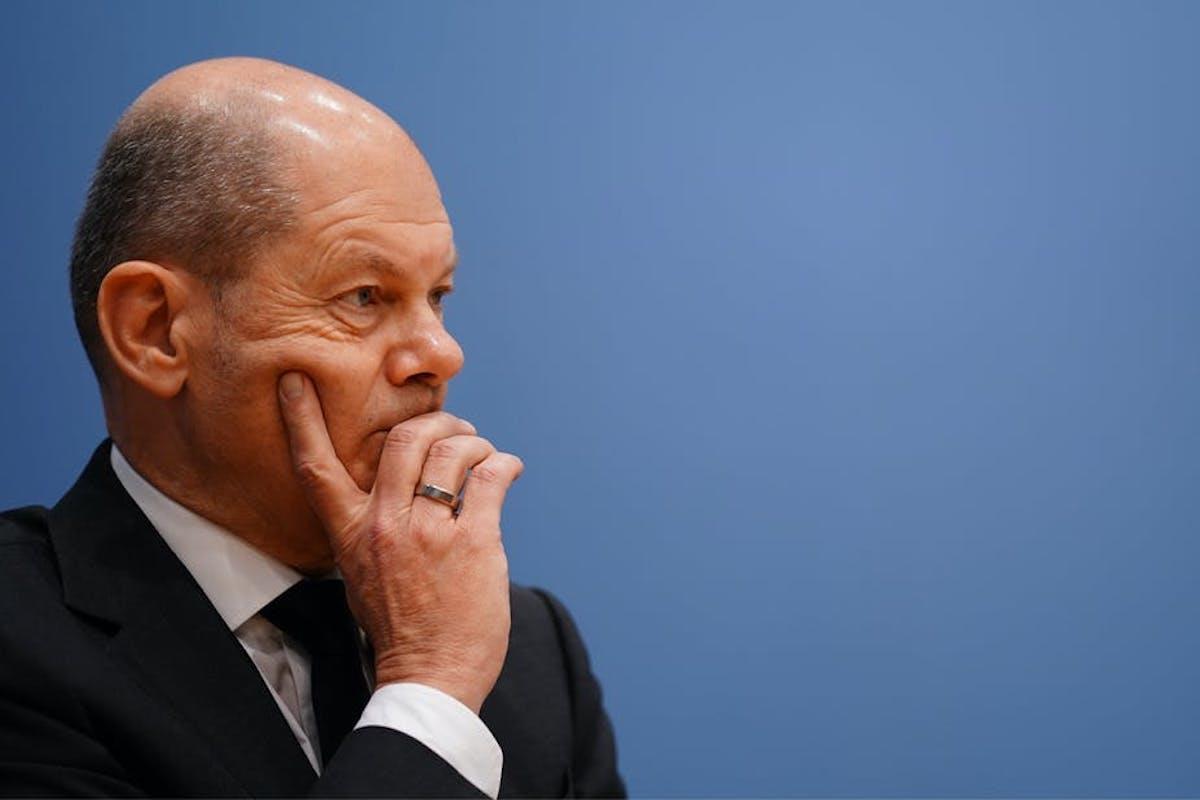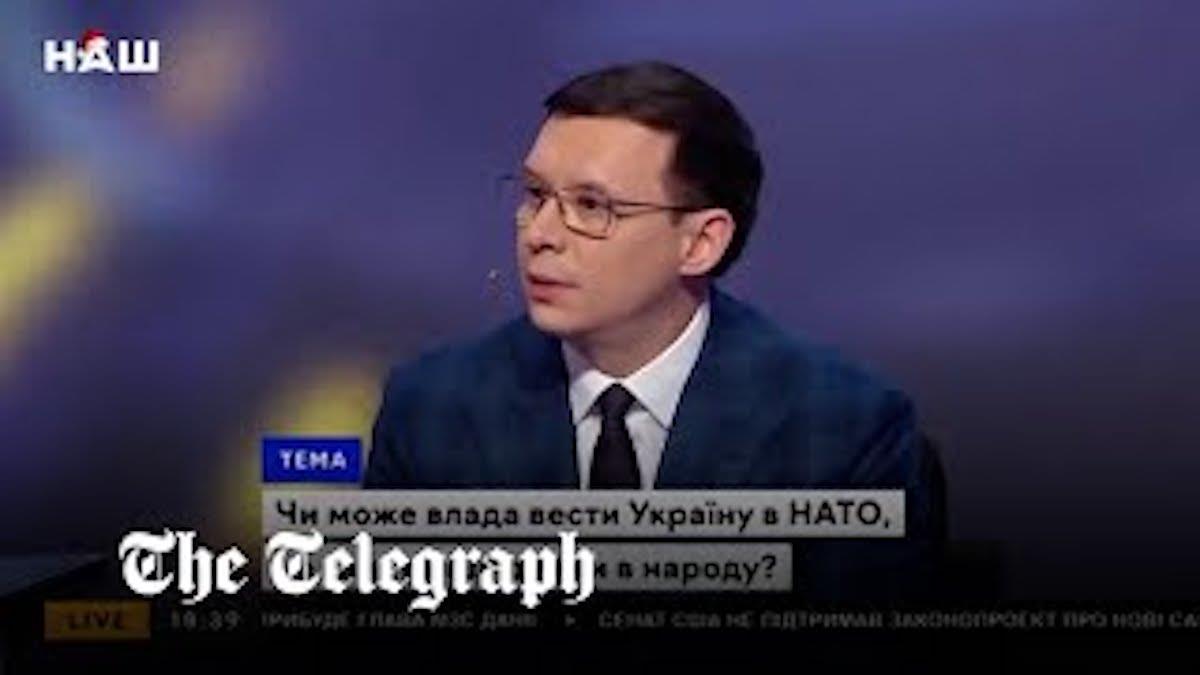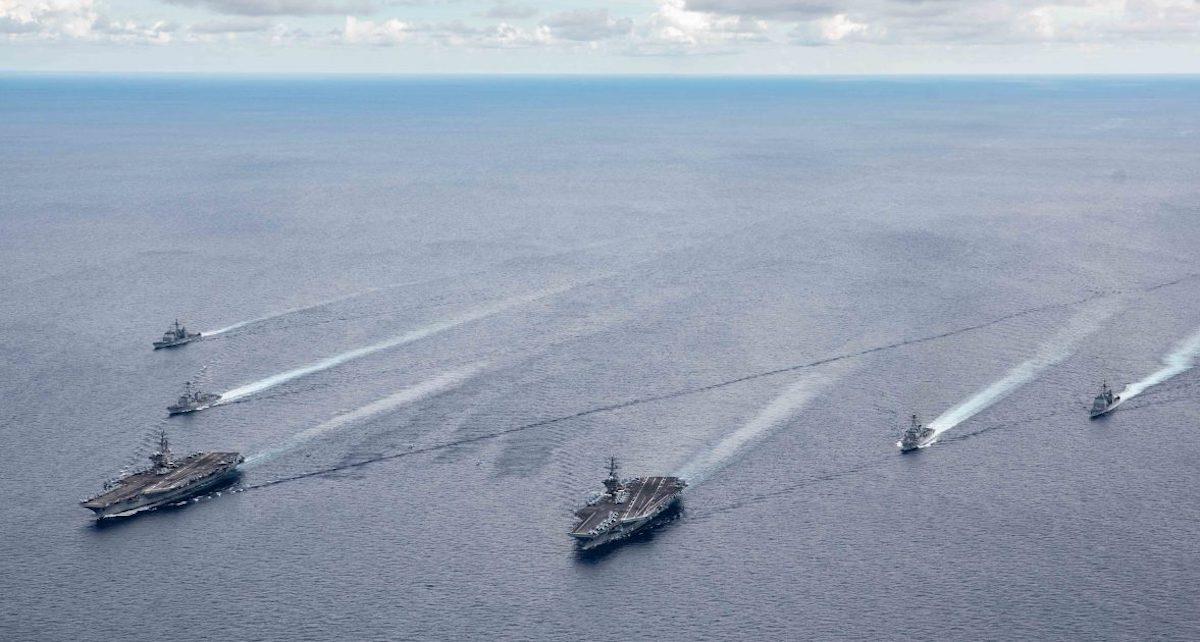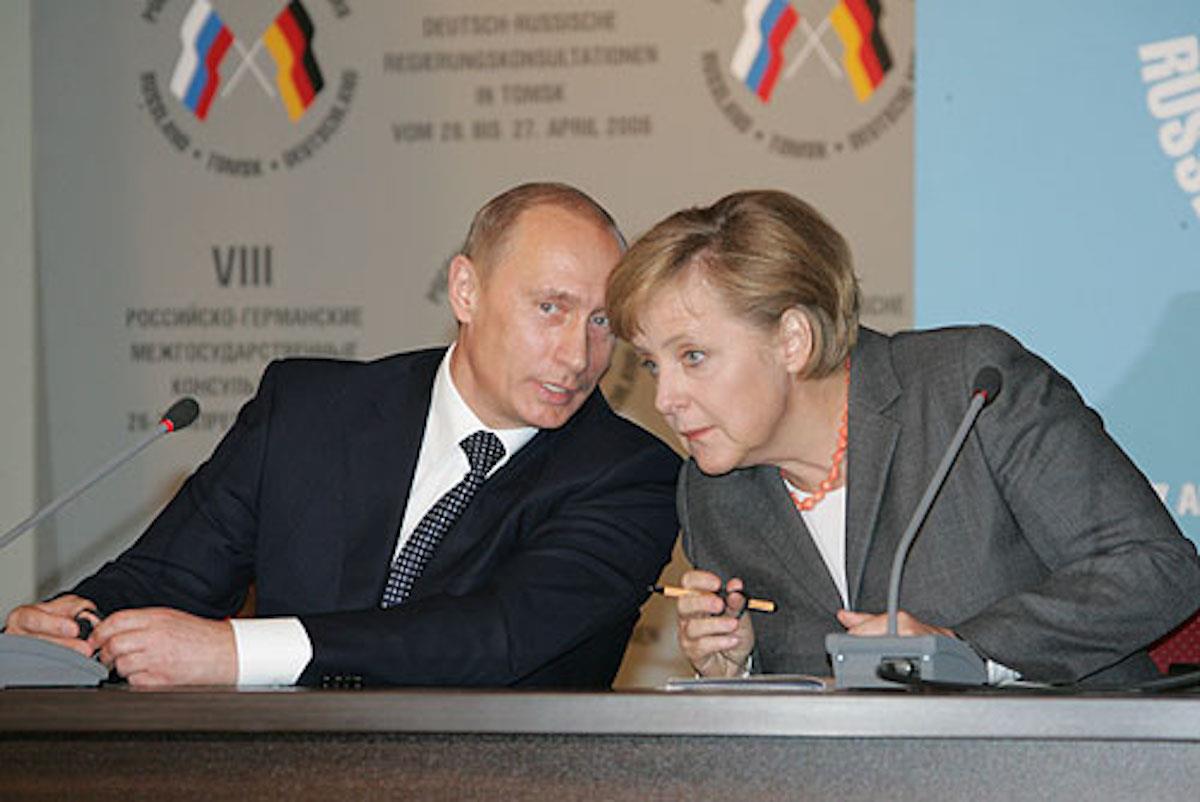(MENAFN- Asia Times)
The US has sent two carrier task forces into the South China Sea, so far at the cost of one F-35C stealth jet that crashed on the deck of the USS Carl Vinson and fell into the sea after injuring seven crew members.
Meanwhile, the USS Harry S. Truman aircraft carrier strike group and NATO allies launched a major military exercise in the Mediterranean Sea on the same day the F-35 jet crashed, January 24.
The White House has let it be known that the President is considering sending US troops to Eastern Europe and the Balkans, along with fighter aircraft and warships. US troops in Europe have been notified and Biden is also looking for a reinforcement of another 8,500 soldiers from the US.
Still, while Eastern Europe reinforcement may be on the agenda, sending troops to Ukraine (at least under NATO auspices) seems off the table.“Many people would yearn to send active, physical support in the form of NATO troops to Ukraine,” UK Prime Minister Boris Johnson told Parliament , but“I don't believe that to be a likely prospect in the near term. Ukraine is not a member of NATO.”
Meanwhile, the Russians have been moving heavy military hardware into Belarus, which has a 1,084-kilometer (674-mile) border with Ukraine. Russian media have put out videos of S-400 air defense systems moved onto railway cars headed for Belarus.
China, meanwhile, has sent 39 warplanes around Taiwan including 24 J-16 fighter jets and 10 J-10 jets, among other support and electronic warfare aircraft including the new J-16D, considered the most advanced and most secretive Chinese air force electronic warfare warplane.
The timing of the US carrier deployment in the South China Sea, and China's answer of sending warplanes around Taiwan, shows that the Pentagon understands the great risk of getting caught in a two-ocean war (Russia, China) and is trying to preempt that.
Yet Washington's attempt to counter the Russians, in the Mediterranean's Ionian Sea, in the Black Sea and in Eastern Europe, as well as in the South China Sea and around Japan, also encourages the hotheads in Russia and China to push for military action, provoking a new world war.
Is there a chance for war or a chance for peace?
Some US allies in NATO are not supporting a battle with Russia. America's Pacific Allies also are worried both about US and Chinese provocations.
In Europe, many of the allies are unsettled and divided – especially Germany. Germany's new chancellor apparently turned down a one-on-one meeting with President Biden to discuss Ukraine, probably fearing arm twisting by Biden, preferring to participate in a NATO-wide teleconference with the US President.

New German Chancellor Olaf Scholz. Photo: EPA
Around the same time, Germany told the UK it could not overfly German territory in arms shipment flights from the UK to Kyiv. (Germany did agree to send 5,000 army helmets to Ukraine – but nothing lethal.)
Ukraine has been mostly unwilling to negotiate the fate of the breakaway provinces of Donbas and Luhansk (both self-declared people's republics), even though the Minsk agreements foresee such a negotiation.
Ukraine's current leaders, instead, are jailing pro-Russian factions in the country, having arrested, among others, former president Petro Poroshenko who has been charged with treason. Ukraine has also carried out raids , allegedly targeting saboteurs operating in Kyiv.
The US has mostly been silent about the Minsk Accords and has not pushed Ukraine to join negotiations. Instead, the US has been meeting with the Russians about Russian demands that Ukraine not be allowed to join NATO. The Russians also proposed that NATO pull its forces back from most of Eastern Europe (with no suggestion by the Russians that they should do the same).
There are different outcomes that need to be addressed. Some are political, some military, some both.
One option for Russia is to recognize the breakaway provinces of Luhansk and Donbas, making it possible for Russia to openly provide military support. There is pressure in Moscow to recognize the two entities and President Putin, if he gives up on the negotiations path, may do this instead of conducting a full scale military invasion of Ukraine.
This move would leave Ukraine with little option: If it wants to fight Luhansk and Donbas, above and beyond what it is now doing, it faces a formidable adversary if openly backed by Moscow. Ukraine would also have to initiate military action, something that forecloses any membership in NATO in the near future.
In any case, had Ukraine had the ability to actually knock off Donbass and Luhansk it would have already done so.
The problem for Putin is that he has committed to the Minsk process. As part of any volte-face, Putin would have to declare the Minsk process (and related diplomatic undertakings) no longer relevant to a Ukraine solution.
A second possible option is an attempt to overthrow the pro-European, pro-NATO government of Ukraine headed by Volodymyr Zelensky. That's exactly what the British Foreign Office and the CIA say is in the works. The British Foreign Office says it has uncovered a plot by Russia to carry out a coup in Ukraine, and the CIA has seemingly backed the British.
Former Ukrainian MP Yevhen Murayev , named as a possible coup replacement for Zelensky, laughed off the British Foreign Office claim, saying the Foreign Office has“made my evening.” In any case, no convincing evidence has been put forward by London or Langley.

Yevhen Murayev. Photo: YouTube
It is quite true that the Russians have replaced governments they did not like (consider Afghanistan, where the coup resulted in the murder of US Ambassador Adolph Dubs).
However, since most of the opposition candidates in Ukraine are under arrest, a coup would require some kind of military intervention capable of taking over the Ukrainian government. Russia could launch such a military regime change operation but it would need special forces, probably paratroopers, and local cooperation.
Perhaps the Russians could send“little green men” as they did in the Crimea but dropping them on the Verkhovna Rada ( the parliament) or the Mariinsky Presidential Palace in Kyiv is probably far too risky, given that the Ukrainians have a strong military and are prepared for this kind of operation if one is launched.
Ukrainian intelligence appears to still be in firm control, making an overthrow of the government and its replacement with a pro-Russian faction far from certain of success.
However, the allegiances of various Ukrainian players may turn out to be not too solid, and Russian intelligence surely has been working within Ukraine. It is impossible to rule out a“local” faction arising from the“inside,” leading to the possible arrest of pro-NATO Ukrainian politicians, including Zelensky.
A land incursion is also a distinct possibility, but the target is uncertain. As noted above, one form of land incursion would move thousands of Russian troops across the border to Luhansk and Donbas. Such a move could precipitate a Ukraine political crisis, especially if the Ukrainians attacked and took heavy losses.
Another option is a military move to take Kyiv. With Belarus now in the game, this option is practical if not optimal. It is not optimal because Ukrainian forces are likely to fight hard for their capital and rolling them up will be messy and could be prolonged (despite some in Russia who want to try a German-style Blitzkrieg).
Such an invasion also could force a concrete US military reaction – far less likely if what happens is a“minor” incursion (something Biden understands but should not have said in a press conference).
But do the Russians want to chance a confrontation that could involve US troops? From one angle it serves the Russians well because the US would almost certainly have to act alone or just with the UK (although Boris Johnson's comments seem to rule that out). That would mean NATO is not officially a party.
But if the US sent troops to Ukraine, the Russians would face a prolonged and painful conflict, something they do not want. The US also would have problems, as it is unlikely that aircraft and supplies could flow from European bases that would be closed to anything other than a NATO-approved operation.
Europeans, overall, do not want to be drawn into a war that would quickly spread, making them targets for Russian missiles and guns.
Meanwhile if the US did intervene it isn't clear what China might do, particularly if encouraged by the Russians (or even without encouragement). That could plunge the US into a two-front war, something it can't really fight.
Would the US abandon Asia for Europe (something the Asians have long suspected) or abandon Europe (something the Europeans have also long suspected)?
In short, American enthusiasm for backing Ukraine militarily is tempered by the risk of a big war in Asia, and a Chinese breakout in the northeastern Pacific, possibly signaling the loss of Taiwan and the humiliation of Japan.

Two-ocean war? USS Ronald Reagan (CVN-76) and USS Nimitz (CVN-68) and their carrier strike groups (CSGs) steam in formation on July 6, 2020.
Days after the State Department publicly rejected China's claims to much of the South China Sea, two carrier strike groups resumed operating in tandem in the region, the U.S. Pacific Fleet announced. Photo: U?S Navy
There are many in the administration and Congress pushing for war if Ukraine“is invaded.” But there will certainly be a reaction if a war does break out. Biden will be blamed and his already toddling administration will collapse. The same thing will happen in the UK, if Boris Johnson survives“partygate.”
Sanctions Washington and the EU have been signaling for some time that their response to a Russian“invasion” of Ukraine would be severe economic sanctions. The EU is currently discussing a range of sanctions, although as yet there is no agreement on them.
Russia has various tools it can use against Europe. Everyone understands that if Russia cuts off gas supplies it can impact Germany, Italy, the UK and a number of Eastern European countries including Poland. Last year Poland imported 60% of its gas from Russia. Italy is the second largest buyer of Russian gas, just ahead of Turkey. Germany is the number one buyer of Russian gas, purchasing 42.7 billion cubic meters from Siberian gas fields.
In short, a cut-off of gas from Russia would torpedo the economies of most European countries, a deficit that cannot be made up by burning more coal or importing LNG from the United States.
Russia can also destroy large parts of the cyber backbone of Europe and the United States, disrupting communications, transportation, manufacturing, energy (pipelines, refineries), government and the military.
The Biden administration understands it has virtually no tools to block ransomware attacks to the critical infrastructure, nor does anyone else in the world.
Vast swaths of critical infrastructure crippled by cyber-attacks could easily lead to chaos and revolution everywhere. It is well known the Russians and Chinese have been practicing attacking critical infrastructure assets for several years, showing how easily they can take down critical systems.
Those thinking about sanctions, including the Biden administration, had better think twice this time about using them.
Alternatives to war The Russians have raised the price on any negotiated Ukrainian deal by demanding guarantees that Ukraine will not become part of NATO. So far, at least, neither Washington nor NATO can agree to this proposition because NATO has an open-door policy on membership.
NATO could change its policy on expanding its membership, although that isn't likely. It could agree to suspend any talks with Ukraine without giving any guarantees. NATO could also reject Ukraine on the grounds that it is not within the capacity of the alliance to defend. There is much truth in that proposition.
One of the aspects of NATO enlargement, most of which took place when Russia was weak, is that NATO's capabilities are stretched well beyond any possibility it could be successful against Russia if Russia were fully rearmed and its forces modernized.
In fact, NATO expanded mainly for political reasons to give assurance to new members of support, but NATO itself was far less capable than it was before 1991 before the collapse of the Soviet Union.
Many NATO members had all but disarmed (the so-called “peace dividend,” the political driver for disarmament). Germany and the Netherlands, for example, scrapped or sold off most of their battle tanks and armored fighting vehicles, reduced the size of their land forces and cut budgets so that even the remaining forces were not getting spare parts or replacements for worn-out equipment.
While the last few years have seen some modest increase in budgets and commitment to new equipment, it will be years before there's any real improvement.
The same is true in the UK, America's“top ally.” The UK army is today smaller than it was at the time of the American Revolution and a lot of British fighting equipment is sub-par. Indeed, the lack of spare parts and weapons stockpiles suggests a very limited ability to sustain any long campaign. The reality is that there are very few combat troops in Europe that can fight against a large, well-equipped, professional army.
It is unlikely that Russia wants a war in Europe. Such a war could unleash forces that would spin out of control, including nuclear weapons. The Russians have not shown great restraint in conflicts – take note of Syria, or Chechnya for that matter – and Putin likely understands that, once the military genie is out of the bottle, he loses control of the on-the-ground situation and might well lack both the ability and authority to roll back a military operation.
What the Russians want is a pro-Russian Ukrainian government that is not in NATO. There are other things they would like, but won't get, like a no NATO pledge or recognition of their annexation of Crimea.
What the Russians want and what they will settle for are two different things.
Luhansk and Donbas are hardly Russian priorities, but Russia might settle for a deal on those two areas if that is the best they can get and if NATO membership is off the table. It appears Russia is not making demands about Western acceptance of their annexation of Crimea. In any case that is a done deal that is unlikely to be reversed.
Reconciliation
One way to address NATO expansion is to find a way to reconcile Russia with NATO. Russian participation in NATO (however limited) could be restored and NATO might agree to a moratorium on expansion as major East-West issues are sorted out. Russian, for example, appears to have strong interest in revisiting nuclear arms control agreements that have been canceled or suspended.
To get to a point where real negotiations can take place it is clear by now that Washington cannot lead the effort. Biden and Blinken and their national security team have tried to leverage the Russians with threats that have had far from the desired effect.
A trusted third party is needed. Recently some have suggested that Turkey can broker a deal, but this seems unrealistic because Turkey is on the fringe of NATO geographically and isn't trusted by Russia.
A better candidate would be someone of considerable stature who has both a good record supporting NATO and reasonably good relations with Russian President Putin. Retired German Chancellor Angela Merkel is the ideal candidate to be the leading personality for the job, since she would garner support from Germany and France on the one hand, and Russia on the other.

Putin and Merkel go way back. Here they are in Tomsk in 2006. Photo: Wikimedia Commons
As things now stand there is a greater chance of war than peace. That needs to be reversed.
The German government should ask Merkel to come to the rescue of Europe. Merkel should go to Moscow.
Stephen Bryen is a senior fellow at the Center for Security Policy.
MENAFN26012022000159011032ID1103598539